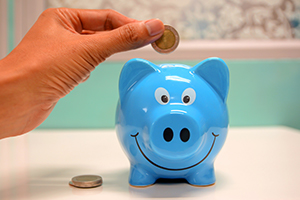Money Matters

As you may have already discovered, paying for a quality education in Australia might be cheaper than other countries such as the US and UK, but it still can be very expensive. With proper preparation, you can minimize the costs of this extraordinary opportunity. Visit our finances page to learn more about paying for tuition. In this section, we explore money matters that you may encounter on a daily basis during your adventure in Australia.
Currency
The Australia currency is based on a dollar and cents system, with 100 cents in one Australian Dollar. Currently the following currency is used:
- $5, $10, $20, $50 and $100 in bank notes
- 5, 10, 20, 50 cent silver colored coins
- $1 and $2 gold colored coins
To calculate money equivalents, you can use this tool.
As with any country, it is not advisable to carry large amounts of cash around with you. There are other options such as credit cards, travelers checks, or bank cards (debit card) which are all valid forms of payment for purchases in Australia.
Travelers Checks
Traveler's checks are one of the safest and easiest ways to transport money, because you may have them replaced if they get lost or stolen. If you choose to carry traveler's checks with you from your home country to Australia, be sure they are denominated in Australian Dollars. Most businesses – with exception to taxis and public transportation methods – will accept Australia-denominated traveler's checks during regular business hours, which typically fall between 9 a.m. and 5 p.m. Monday through Friday. It is wise to bring about $100 with you in cash upon your arrival.
Bank Accounts
Within the first few days of your arrival, you may want to open a checking account with a bank near your campus. You may directly deposit traveler's checks for free in most cases, or arrange for a wire transfer from your home bank for a fee. Typically, you may make an unlimited number of additional deposits or withdrawals thereafter. Be sure to always have sufficient funds in your account to cover all outstanding checks. If you "overdraw," the bank may impose expensive fees. Also be aware that there is usually a waiting period of a few days before you may withdraw the money you deposit, which is a way for the bank to protect itself from fraud.
Note that you will most likely need some form of identification to open a checking account. The bank representative may ask you for your visa as proof as residency before they will provide you with an account.
Many college students appreciate the convenience of an ATM (Automatic Teller Machine) card. The card allows account holders to make deposits, withdrawals, and process other transactions at any time – 24 hours a day – through machines located throughout campus and shopping districts. If you have an ATM card from a bank in your home country, ask whether the Australian bank will honor it. Some Personal Identification Numbers (PINs) cross national borders, while others do not. As a safety precaution, most ATMs limit the daily withdrawal amount to $300. If you happen to lose your ATM card, report it immediately to your local bank office.
